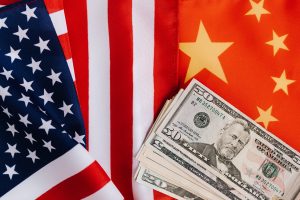The narrative of China’s success in lifting 100 million people out of poverty has become an oft-repeated tale of economic triumph. However, this achievement warrants a closer examination, revealing a multifaceted story that extends beyond mere numbers.
Rural Exodus and Urbanization: A Transformational Shift
It is often said that China’s poverty alleviation efforts have predominantly focused on farmers who migrated to larger cities, seeking employment in China’s “booming” industrial sector. The decision to leave rural life behind and pursue urban opportunities underscores a profound transformation. These migrants became the engine of China’s rapidly expanding manufacturing and export-oriented industries.

Photo by Photoholgic on Unsplash
Trade Expansion and GDP Emphasis: A Double-Edged Sword
China’s strategic push to increase world trade and boost exports as a means to bolster its GDP forms a crucial backdrop to this narrative. While these objectives contributed to economic emphasis, they also brought about unintended consequences. The emphasis on GDP at all costs led to environmental degradation and resource depletion, underscoring the limitations of using GDP as the sole barometer of progress.
Environmental Devastation: The Hidden Cost of Industrialization
The rapid industrialization and urbanization of China have exacted a significant toll on the environment. Pollution, deforestation, and resource overconsumption have accompanied the nation’s GDP ascent. The pursuit of GDP-driven emphasis has raised questions about the sustainability of China’s development model and its long-term impact on the planet.
Questioning the Notion of Prosperity
As we delve into the discussion of China’s so called poverty alleviation efforts, it’s essential to reconsider our understanding of poverty itself. Does a self-sufficient farmer who grows their own food, has access to clean water, and lives in harmony with nature truly fit the conventional definition of poverty? The contemporary measurement of poverty often fails to account for such scenarios.
Beyond GDP: Rethinking Development Metrics
China’s experience serves as a poignant reminder that economic prosperity cannot be equated with holistic well-being. The emphasis on GDP as the primary measure of success belies the broader impact of economic decisions. Sustainable development calls for a more nuanced approach, one that encompasses environmental stewardship, social cohesion, and cultural preservation.
In an era that demands holistic progress, let China’s story serve as a reminder that the pursuit of prosperity requires a nuanced understanding of the intricate interplay between economics, environment, and human well-being.












